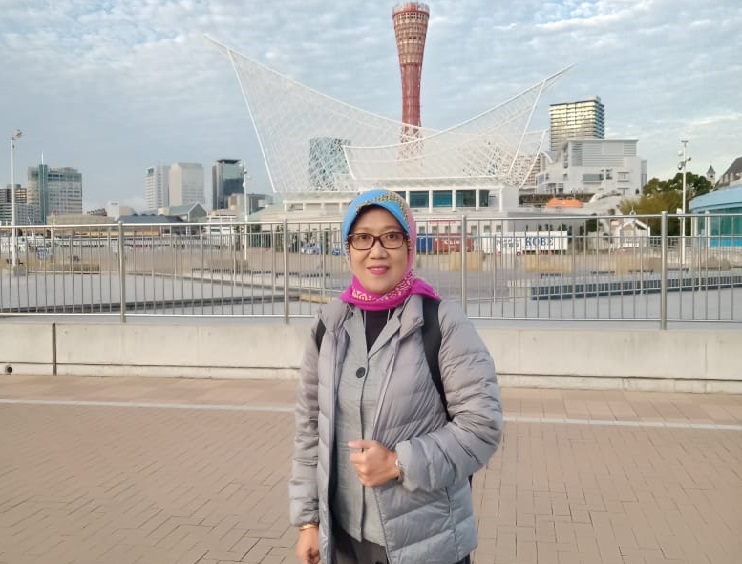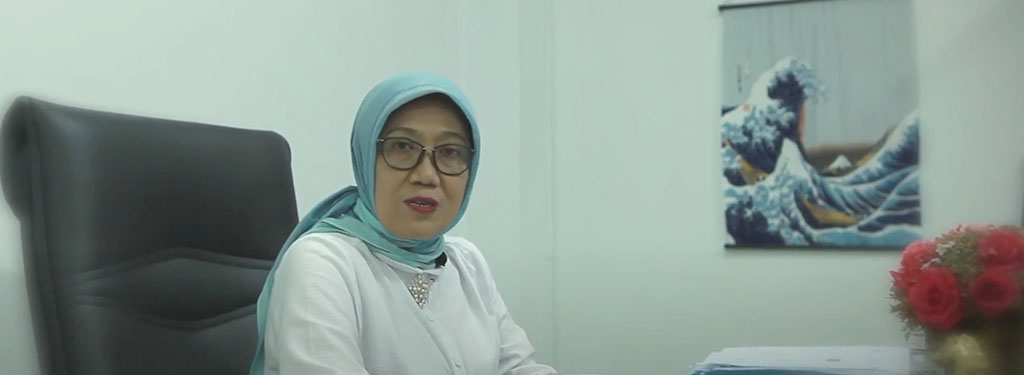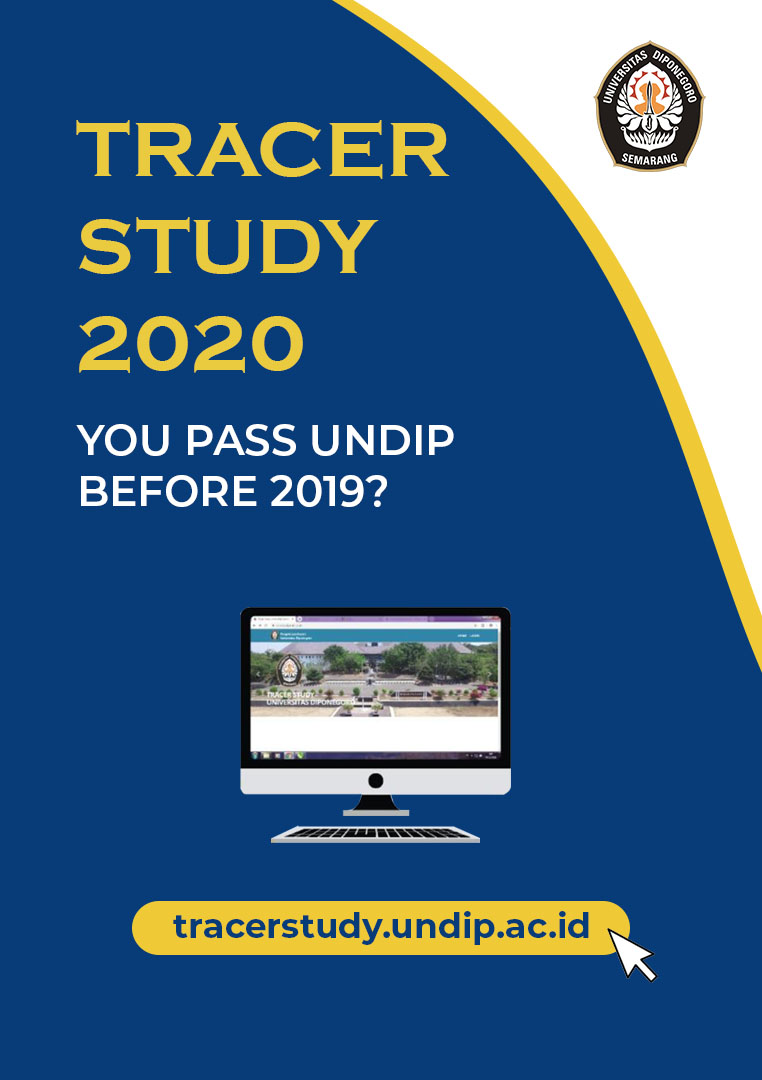FPIK, SEMARANG – The momentum of the appointment of Prof. Ir Tri Winarni Agustini M.Sc, Ph.D as Dean of the Faculty of Fisheries and Marine Sciences (FPIK) Diponegoro University (UNDIP) for the 2019-2024 period seems to reveal the impression that the world of fisheries and marine is the world of men. At least the masculine impression in the fisheries and marine higher education environment dissipated when the UNDIP Rector, Prof. Dr. Yos Johan Utama, took Prof. Winarni’s oath as the first person in FPIK.
The transfer of leadership from Prof. Dr. Ir Agus Sabdono M.Sc to Prof. Tri Winarni Agustini which took place at the SA-MWA Building (Academic Senate-Board of Trustees) of UNDIP Tembalang, Monday (05/08/2019) was also recorded as the presence of the first woman in Dean Chair of FPIK UNDIP. “If I become the first woman to become a Dean since FPIK UNDIP was born, that is true. But if the presence of women in the world of fisheries and marine affairs, especially in their scientific context, I think it is common, ”said the Fish Processing Technology expert who was born in Kebumen, August 21, 1965.
After graduating from SMA Negeri 1 Kebumen, in 1984 Winarni entered the Department of Fisheries at the Faculty of Animal Husbandry and Fisheries, UNDIP. After earning an engineering degree in 1989, young Winarni chose to serve at her alma mater as a lecturer. This choice gave him the opportunity to study at a higher level.
In 1991 she had the opportunity to study at the University of Humberside, England and completed the Master of Food Science and Technology program in 1993. As for the Strata 3 level was undertaken at the Tokyo University of Fisheries-TUF (now Tokyo University of Marine Science and Technology-TUMSAT), Japan and successfully bagged a Ph.D (Doctor of Philosophy) in 2001. “Further studies abroad are interesting. But we also have to be aware of the many challenges that must be faced, ”she said, reminding us of the need to get used to seeing one thing from several sides.
SHe achieved the highest achievement for an academic position as a professor in December 2017 and on Wednesday (14/3/2018) Tri Winarni was confirmed as a Professor at FPIK UNDIP. The scientific speech with the theme “Future Food Products Based on Fish Resources” which he presented at the Open Senate Session at Prof. Soedarto SH Building, UNDIP Tembalang Campus, marked the validity of using the title Prof. in front of her name.
Apparently, it is not only the academic career of the authors of dozens of scientific journals and reviewers of these journals. Her structural career at the Diponegoro Campus has also progressed well. Before being sworn in to become Dean of FPIK for the 2019-2024 period, the owner of NIDN (National Lecturer Number) 0021086501 was entrusted with being the Secretary of the PSP Study Program (Utilization of Fishery Resources, now a Capture Fisheries Study Program) in 2001-2003; then became Secretary of the THP (Fishery Product Technology) Study Program in the 2003 – 2007 period; in 2007-2010 he became an expert staff of the Research Institute and in 2016-2019 assumed the mandate as Secretary of the LPPM (Institute for Research and Community Service) UNDIP.
Now, as the first person in FPIK who manages 10 study programs and has the resources of 19 professors and 55 lecturers with doctoral degrees, Prof. Winarni who is also active in the field of Halal Food (representative of the Center for Halal Studies UNDIP) strives so that not only the quality of education and accreditation is superior , but also must strive so that the existing study programs are better known and closer to the community. Tri Winarni, who lived from childhood to adolescence in the southern coastal region of Java, invited young people to plunge into managing the enormous potential of Indonesia’s seas and waters for mutual welfare.
“Who should manage the potential of our oceans and waters if not the nation’s children? How come we want to let foreigners enjoy our marine wealth? Our sea is very rich, wide and sufficient for the welfare of our nation’s citizens, ”She said excitedly.

Foto: Prof. Ir. Tri Winarni Agustini, M.Sc., Ph.D.
She explained, FPIK UNDIP is a campus that is ready to educate young people to study fisheries and marine affairs. In the undergraduate program, there are six study programs that can be selected, starting from the Aquaculture Study Program, the Aquatic Resources Management Study Program, the Oceanography Study Program, the Capture Fisheries Study Program, the Fisheries Product Technology Study Program, and the Marine Science Study Program. “For the undergraduate level, we are quite complete. It should be noted, the Oceanography Study Program is only at UNDIP and ITB, “She said.
For the postgraduate level, at the Masters level there is a Master Program in Marine Science and a Masters in Aquatic Resources Management. Meanwhile, at the S3 level there is a Doctoral Program in Aquatic Resources Management and a Doctoral Program in Marine Science. To be sure, as the organizer of higher education, FPIK Undip also conducts a lot of research on fisheries and marine, both independently and in collaboration with other parties. FPIK also has a Scopus indexed scientific journal, namely the IJMS Journal (Indonesian Journal of Marine Science) as well as several nationally accredited journals (Sinta 2 and 3) to be proud of.
In the context of strengthening students’ insights, FPIK also always holds public lectures from highly competent speakers. Among them by inviting several experts from government agencies, practitioners as well as diaspora practitioners such as the Head of the Center for Hydrography and Oceanography of the Indonesian Navy (Kapushidrosal), Rear Admiral of the TNI Dr. Ir Harjo Susmoro SSos SH MH, Prof. Irwandi Jaswir, to provide understanding and additional insight and introduction the real world in the industry to students related to the development of science in the fields of fisheries and marine
“Cooperation with all institutions, both government and private, is a concrete step to bring the academic world closer to reality. Especially in the era of information technology that is so fast whacking. Synergy and collaboration are a necessity, “She said while pointing out some of the impacts of the disruption in the digital world.
Asked about the program during her tenure as Dean of FPIK, improving academic quality, be it teaching, research and community service is a priority that cannot be negotiated. Quality is not only the curriculum and supporting facilities such as an updated laboratory; but also accreditation as a form of legal recognition must be achieved. “We strive so that all study programs at FPIK have superior accreditation from national and international institutions. Currently we are pioneering ASIIN international accreditation for IK, Oceanography and Aquaculture Study Programs. Hopefully this year or next year can be achieved. Building more partnerships with foreign universities is also important. Our direction is clear, contributes significantly to bringing UNDIP into World Class University, “She concluded. (Tim Humas UNDIP)


